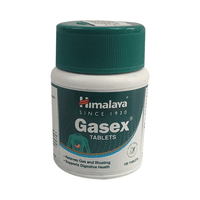Zaha-DX Eye Drop
food interaction for Zaha-DX
alcohol interaction for Zaha-DX
pregnancy interaction for Zaha-DX
lactation interaction for Zaha-DX
food
alcohol
pregnancy
lactation
No interaction found/established
No interaction found/established
Information regarding the use of Zaha-DX Eye Drop during pregnancy is not available. Please consult your doctor.
CONSULT YOUR DOCTOR
Information regarding the use of Zaha-DX Eye Drop during breastfeeding is not available. Please consult your doctor.
CONSULT YOUR DOCTOR
SALT INFORMATION FOR Zaha-DX
Azithromycin(10mg)
Uses
Azithromycin is used in the treatment of bacterial infections. It is used in bacterial infections of tonsils, sinus, ear, nose, throat, skin and soft tissues and lungs (pneumonia).
How it works
Azithromycin is an antibiotic. It works by preventing synthesis of essential proteins required by bacteria to carry out vital functions. Thus, it stops the bacteria from growing, and prevents the infection from spreading.
Common side effects
Vomiting, Nausea, Abdominal pain, Diarrhea, Headache, Palpitations, Chest pain, Indigestion, Flatulence, Dark colored stool, Vaginal moniliasis, Vaginal inflammation, Fatigue, Rash, Itching, Photosensitivity, Nephritis, Dizziness, Vertigo, Angioedema (swelling of deeper layers of skin)
Dexamethasone(1mg)
Uses
Dexamethasone is used for Inflammatory conditions and Autoimmune conditions.
How it works
Dexamethasone is a steroid which works by blocking the production of certain chemical messengers in the body that cause inflammation (redness and swelling) and allergies.
Common side effects
Increased appetite, Edema (swelling), Increased intraocular pressure, Decreased potassium level in blood, Tendon rupture, Weight gain, High blood pressure, Increased glucose level in blood, Menstrual disorder, Glaucoma, Slow heart rate, Tachycardia, Arrhythmia (irregular heartbeats), Enlarged heart, Circulatory shock, Fat embolism, Fainting, Thromboembolism, Thrombophlebitis, Vasculitis, Glucose intolerance, Cushing syndrome, Fat accumulation, Conjunctival hemorrhage, Vitreous detachment, Conjunctival hyperemia, Posterior subcapsular cataract, Acne, Allergic dermatitis, Hair loss, Stretch marks, Facial redness, Fragile skin, Skin hyperpigmentation, Hypertrichosis (excessive hair growth), Hypopigmentation, Fluid retention, Growth retardation in children, Excessive hair growth on face, Hypokalemic alkalosis, Negative nitrogen balance, Hiccup, Nausea, Vomiting, Abdominal pain, Pancreatic inflammation, Anal itching, Defective spermatogenesis, Kaposi sarcoma, Hepatomegaly (enlarged liver), Anaphylactic reaction, Sterile abscess, Postinjection flare, Emotional lability, Headache, Idiopathic intracranial hypertension, Increased intracranial pressure, Myasthenia (weakness and rapid fatigue of muscle), Neuropathy, Personality changes, Seizure, Vertigo, Amyotrophy, Bulging eyes, Pulmonary edema, Impaired wound healing, Aseptic necrosis, Muscle weakness, Osteoporosis, Pathologic fracture of long bones, Steroid myopathy, Vertebral compression fractures, Increased liver enzymes
SUBSTITUTES FOR Zaha-DX
No substitutes foundExpert advice FOR Zaha-DX
- Do not skip any doses and finish the full course of treatment even if you feel better. Stopping it early may make the infection to come back and harder to treat.
- Take it 1 hour before or two hours after food.
- Do not take antacids 2 hours before or after taking Azithromycin.
- Diarrhea may occur as a side effect but should stop when your course is complete. Inform your doctor if it doesn't stop or if you find blood in your stools.
- Stop taking Azithromycin and inform your doctor immediately if you develop an itchy rash, swelling of the face, throat or tongue or breathing difficulties while taking it.
Frequently asked questions FOR Zaha-DX
Azithromycin
Q. Is Azithromycin safe?
Azithromycin is safe if used at prescribed doses for the prescribed duration as advised by your doctor.
Q. What if I don't get better?
You should inform your doctor if you do not notice any improvement in your symptoms after 3 days of taking Azithromycin. Also, if your symptoms get worse, inform your doctor immediately.
Q. Can the use of Azithromycin cause diarrhea?
Yes, the use of Azithromycin can cause diarrhea. It is an antibiotic which kills the harmful bacteria. However, it also affects the helpful bacteria in your stomach or intestine and causes diarrhea. If you are experiencing severe diarrhea, talk to your doctor about it.
Dexamethasone
Q. Is Dexamethasone a steroid?
Yes, Dexamethasone is a steroid medicine also known as glucocorticoids which occur naturally in the body and help to maintain health and wellbeing. Dexamethasone helps in treating various illnesses involving inflammation (redness, tenderness, heat and swelling) in the body.
Q. What is Dexamethasone used for?
Dexamethasone has anti-inflammatory and immunosuppressant properties. It is used to treat conditions like allergic conditions, anaphylaxis, asthma, rheumatoid arthritis and inflammatory skin diseases. It also aids in treating autoimmune diseases (these diseases happen when your body’s immune system attacks the body itself and causes damage) and certain eye disorders. Additionally, it is used to treat cancer and nephrotic syndrome when used with other medicines.
Q. How is Dexamethasone administered?
Dexamethasone should be administered by a doctor or under the supervision of a healthcare professional and should not be self-administered. Usually, it is given into a muscle (intramuscular), joint (intra-articular), directly into a vein (direct intravenous), infusion or into the area being treated (soft tissue infiltration). The dose will be decided by your doctor based on the condition you are being treated for as well as your body weight. Follow your doctor’s instructions carefully to get the maximum benefit from Dexamethasone.






















